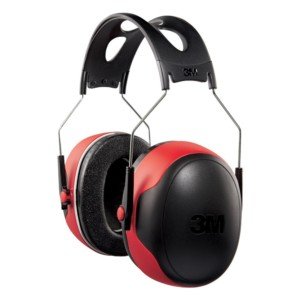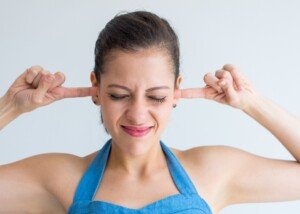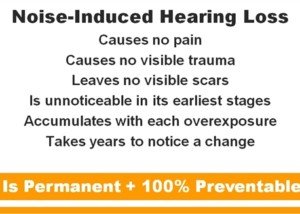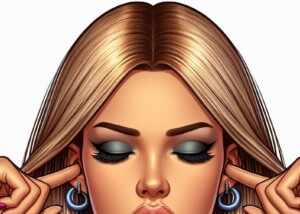You’re NOT a sissy if you use hearing protection, yet many hunters fail to protect their ears from the loud blasts of rifles which can reach up to 160 decibels.
Having Healthy Sharp Hearing Is Not a Sign of a Sissy
A target shooter, says the Oregon Occupational Health and Safety Administration, can suffer a whole years’ worth of noise exposure in a matter of minutes.
Hunters often protect themselves from the elements in a variety of ways (e.g., sunscreen, purified water), but neglect protecting their hearing from firearm noise.
“Hunters should always use ear protection because they never know when they will have the opportunity to fire their guns,” says Michael Stewart, PhD, Professor Emeritus of Audiology at Central Michigan University and an avid hunter.
“The most commonly used guns for small and large game hunting generate impulse noise high enough to cause hearing loss and associated tinnitus with even one shot under the right acoustic conditions.”
Tinnitus is ringing in the ears, and this can be permanent. Dr. Stewart continues, “Hunters should use electronic hearing protection or non-linear plugs (ex. combat arms).
“These devices allow the hunter to hear soft sounds yet attenuate loud sounds such as firearm noise to safe levels.”
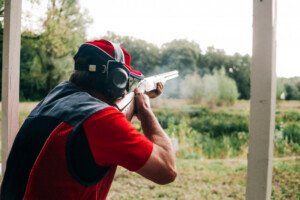
Freepik.diller
Dr. Stewart conducted a survey of 300 shooters; about 40 percent never employed protection for their ears during target practice. 40 percent!
Why is this? Do they think only sissies “cover” their ears? There’s certainly nothing macho about needing hearing aids!
How many used hearing protection all the time? Under 12 percent.
How many used any hearing protection during hunting? Less than 20 percent.
How great is the potential for hearing loss from gun blasts? Dr. Stewart says, for example, that if several blasts are fired from a large bore firearm within 3-5 seconds, the probability of hearing loss is significant.
Does this mean that the hunter, upon arriving home, will have difficulty hearing his wife or kids talking to him? No.
Hearing loss that’s incurred from one day of shooting will not necessarily be noticeable in a normal environment.
The hearing loss may have impaired the hunter’s ability to decipher words from 40 feet away, when the day before the hunting trip, he could have deciphered them from 50 feet away.
Nothing macho about that. And by the way, some hunters and shooters are women, and not all of THEM wear hearing protection for their ears, either. What a mystery.
The deterioration of hearing is not going to be detectable in day-to-day living experiences, “but the individual may have difficulty hearing in very noisy environments,” says Dr. Stewart.
And over time, more and more hearing loss from rifle blasts will start becoming noticeable, as the hunter has to repeatedly ask people to repeat things, or finds he can’t understand the TV unless it’s pretty loud.
This is called noise-induced hearing loss and it is not reversible! “Sudden hearing loss from excessive noise exposure (acoustic trauma) can also occur.”
Dr. Stewart urges all hunters to wear ear protection when shooting firearms.
Ear muffs are sold in the hunting supply section of sporting goods stores and can be ordered online.
“Choose devices with high noise reduction ratings (over 25 dB),” says Dr. Stewart.
A better option is to, in addition to the ear muffs, wear custom made earplugs; hearing aid clinics offer this service. They can also be made from home.
Don’t feel like a sissy for protecting your ears from becoming like an old person’s.
Dr. Stewart also recommends electronic hearing protection (behind-the-ear or in-the-ear devices).
These allow the hunter to hear normally while waiting for approaching game, yet they protect hearing when the rifle is shot.
Dr. Stewart adds that too many hunters believe that hearing protection is too expensive to bother with.
And many other hunters believe that ear muffs or plugs would make them look like a…well…you already know.
But a hunter, who spends quite a bit of money on reliable hunting equipment and clothes, should consider the expense of hearing protection to be part of the experience of hunting, and an investment in hearing protection.
The Price of Hearing Protection
Hearing aids are very expensive, not to mention a major hassle (know anyone with hearing aids? Ask them), and a hunter will never be able to get back his (or her) lost hearing.
The ear muffs are actually cheap, coming in as low as $15. Custom made earplugs can be around $100 for a pair, maybe $150 tops.
Electronic devices can range from $200 to $600. Dr. Stewart, who suffered permanent ringing in the ears from hunting as a child, insists that electronic protection should be a staple of every hunter’s gear.
If that sounds pricey, then start with a $175 investment in the combo of ear muffs and custom made earplugs. This is nothing compared to that $1,000 rifle.
 Dr. Stewart is widely published in academic journals, and his research area focuses on industrial and recreational hearing conservation, and amplification.
Dr. Stewart is widely published in academic journals, and his research area focuses on industrial and recreational hearing conservation, and amplification.
 Lorra Garrick has been covering medical, fitness and cybersecurity topics for many years, having written thousands of articles for print magazines and websites, including as a ghostwriter. She’s also a former ACE-certified personal trainer.
Lorra Garrick has been covering medical, fitness and cybersecurity topics for many years, having written thousands of articles for print magazines and websites, including as a ghostwriter. She’s also a former ACE-certified personal trainer.
.

